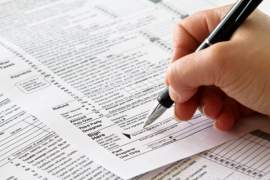
Maryland Tax

FULL List to Maryland Tax Forms
Individual Income Tax Forms
Form 503 Individual Income Tax Return Resident
Form 505 Individual Income Tax Return Nonresident
Form 515 Individual Income Tax Return Nonresident Local
Corporate Income Tax Forms
Form 500 Corporation Income Tax Return
Form 500X Amended Corporation Income Tax Return
Sales Tax Forms
Form ST-205 Sales and Use Tax Refund Application
Property Tax Forms
Form AT3-45 Transfer, Sale or Disposal of All Tangible Personal Property
Form HTC-60 Homeowners' Property Tax Credit Application
There are a number of taxes applicable to the state of Maryland, which includes sales tax, five income brackets for personal income taxation as well as local taxes. Tax returns are due on April 15.
Maryland state sales tax – 6%, no local sales tax (food, prescription drugs, clothing up to $175, and utilities such as gas, oil and electricity are exempt)
Maryland state personal income tax
Eight income brackets for single filings
2% - first $1,000 of taxable income
3% - $1,001 - $2,000
4% - $2,001 - $3,000
4.75% - $3,001 - $150,000
5% - $150,001 - $300,000
5.25% - $300,000 - $500,000
5.5% - $500,001 – 1 million
6.25% - $1 million+
Counties and municipalities may add taxes from 1.25% to 3.20% to “piggyback” on state rates. Baltimore city, for example, levies a tax of 3.05% on top of Maryland state taxes.
Maryland state excise taxes
Taxes assessed on vehicles, alcohol, tobacco, gasoline and are in addition to federal excise taxes.
$2.00 per package of 20 cigarettes,
$1.50 tax per gallon of liquor
$.09 per gallon barrel of beer
$.40 per gallon of wine
$.235 a gallon on gasoline , $.24.3 on diesel
Maryland inheritance tax
Maryland exempts taxation if the estate passes to a spouse, child and/or relative of lineal descent, parent, grandparent or sibling. Any other transfer of estate is subject to a 10% tax rate. A tax return must be filed if the estate exceeds $1,000,000. This estate is taxed at 16%.
Maryland payroll taxes
State Disability Insurance – none
State Unemployment Insurance – 1.32% to 12.33%, wage base is $8,500. Employer contribution is 2.3% but if the employer is a construction firm form out of state, that rate is 9.4%
Maryland state property tax
Property must be assessed by Jan 1, annually and listed by March 15. The Maryland State property tax is 11.2 cents per $100 of assessed value. There is an additional assessment for local taxes, which ranges from $0.475 to $2.268. The Homestead Credit caps tax increases at 10% or less and there is a homeowner’s property tax credit for homes under $60,000 in value. Property tax bills are issued in July or August of each year.
Exemptions
Pension income exclusion stands at $23,600 for in certain cases. There are also a number of personal income credits available, such as a credit for buying health insurance.
Corporate income tax
The corporate tax rate in Maryland is 8.25%. This is modified if the corporation operates across multiple states. Proceeds from the corporate tax are paid into the Higher Education Investment Fund.
Misc
Social Security, railroad retirement income are not taxed under Maryland law.
Military personnel receiving their only income from the military pay will be exempt from taxes in Maryland. If they receive income in Maryland, military pay will not be used in their income calculation. They will not need to file tax returns. Blind veterans and spouses also receive special property tax exemptions.
When going forward with the task of filing Maryland taxes, you may acquire forms in three ways, which include requesting them by email, visiting local public libraries or post offices, or by printing them out from the actual website containing Maryland tax forms online. Prior to filing income taxes, there are certain requirements you must possess. In order to file, you must be a Maryland resident, have been required to file federal income tax returns, and have also fallen into the gross income filing requirements for the state.
According to Maryland tax laws, there are distinctions placed upon different categories of persons. The first general differentiation specifies whether you are single, the head of the household, married filing jointly, married filing separately, a widower, or a dependent taxpayer. In addition to this, there are divisions depending upon age, such as that of ranges from 65 and under to 65 and older. These are accompanied by their gross income requirements, which then determine their filing status. Aside from the actual compilation of your information for the purposes of your adherence to the state, you may also be eligible for personal income tax credits, which reduce the total amount of tax owed to the state.
Some examples of Maryland tax credits include “Child and Dependent Care,” “Poverty-Level,” and “Quality Teacher Incentive” credits. In order to qualify for a Child and Dependent Care Tax Credit, you must have, of course, claimed credit on you federal income tax return for that of a minor or for other “dependent care” costs.
Qualifications consist of the following: federally adjusted gross income must have been $50,000 or lower unless you are filing separately while married, in which case the range would be $25,000 or lower. State tax credit for this stems from the calculation of a percentage taken from whatever federal tax credit you are guaranteed for “child and dependent care.”
This percentage does fall, however, as those incomes rise. In addition, they may be eliminated from your options altogether if they reach a maximum quantity. In addition to such credits, individuals may also be eligible for college savings plans. This entails that you had put forth monetary considerations toward and of these 3: the Maryland Prepaid College Trust, Maryland College Investment Plan, or the Maryland Broker-Dealer College Investment Plan. In order to claim any deductions, you must use form 502.
In terms of the reception of refunds from your income taxes, you may look online as to the availability of such information. Your income tax return must be on hand in order for you to quickly ensure that the information provided was correct. In addition to this, you may also email the appropriate offices in relation to the state of Maryland. Pertinent information will include your name, social security number, and the refund amount request. In reference to the quickest means of acquiring a refund, you will do well to choose to file electronically as they are usually processed the day of.
NEXT: Massachusetts State Tax





















